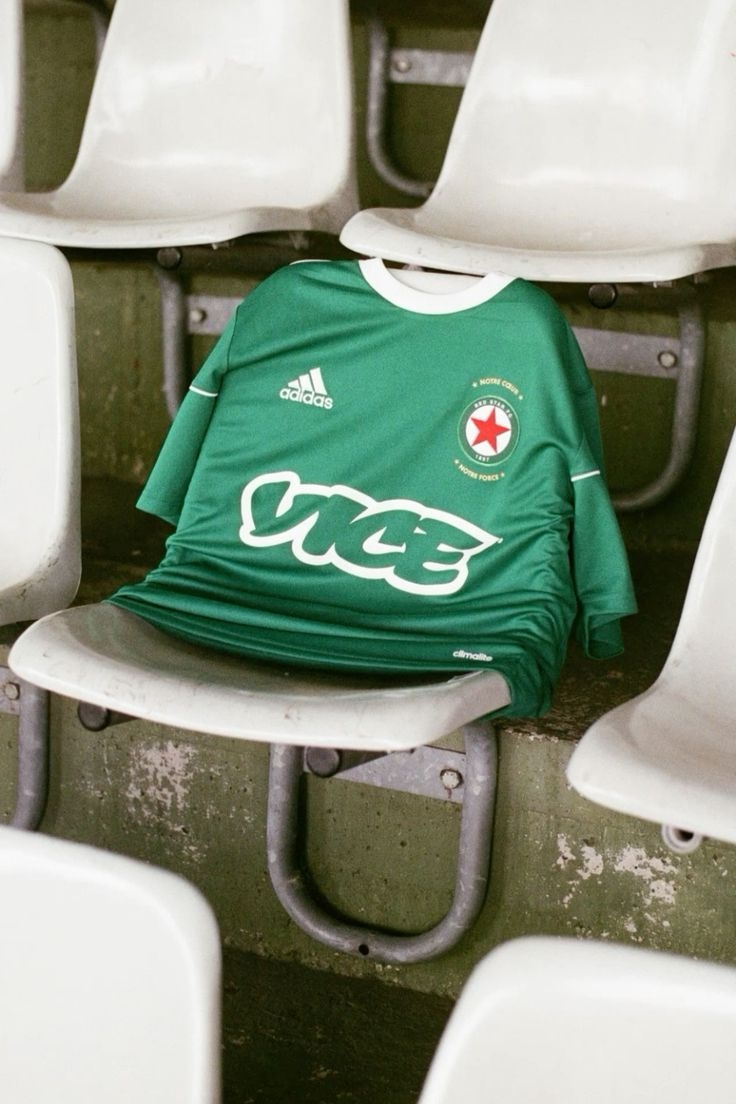In recent years, the sports world has become increasingly aware of the environmental impact of fashion and textile production. Football is the most popular sport worldwide, which brings a massive demand for sportswear. Traditionally, football jerseys are made from virgin polyester, a material derived from fossil fuels. Fortunately, innovative materials like recycled polyester and ocean plastic have recently entered the market. In this blog, we’ll explore the rise of sustainable materials in sportswear, especially in football jerseys.
The impact of traditional sportswear
Sportswear is traditionally made from polyester due to its lightweight, breathable, and stretchy properties. Polyester allows players to move comfortably and efficiently wick away sweat. However, producing virgin polyester requires vast amounts of energy and relies on petroleum, a non-renewable resource. Additionally, washing polyester clothing releases microplastics, which ultimately end up in the environment and contribute to ocean pollution.
The rise of recycled polyester
Recycled polyester, also known as rPET, is an alternative made from recycled plastic bottles and other plastics. By breaking down plastic in a chemical process and rebuilding it into polyester fibers, the need for new fossil fuels is drastically reduced. This recycled polyester offers nearly the same properties as virgin polyester but with a significantly lower environmental footprint.
Using rPET reduces the demand for new plastic and provides a purpose for the massive number of plastic bottles in circulation worldwide. Major brands like Nike, Adidas, and Puma have already taken steps to incorporate recycled polyester into their product lines, including football jerseys. The use of rPET decreases dependency on petroleum, reduces greenhouse gas emissions, and gives waste materials a new life.
Ocean plastic: a step further
In addition to recycled polyester, ocean plastic—plastic collected from oceans and coastal areas—has become increasingly popular in sportswear. Brands like Adidas and Parley for the Oceans have partnered on projects to retrieve plastic waste from oceans and transform it into usable material for clothing. Ocean plastic is then processed into yarn, which can be used to create football jerseys.
This partnership not only helps tackle the issue of plastic pollution but also raises awareness of ocean pollution among a large audience. Ocean plastic products are often clearly labeled so that consumers are more aware of their impact and feel encouraged to make more sustainable choices. For example, Adidas introduced football jerseys for prominent clubs like Real Madrid and Bayern Munich made from ocean plastic. These jerseys were not only worn during matches but also promoted as eco-friendly fashion, increasing visibility for sustainable choices in the sports world.
Technical challenges and innovations
While the use of recycled polyester and ocean plastic is promising, there are also technical challenges. Processing recycled plastic into high-quality, comfortable sportswear requires advanced technologies. The plastic must be thoroughly cleaned, melted, and spun into fine fibers that can withstand the rigorous conditions of a football match. Additionally, the clothing must be comfortable, breathable, and durable to maintain the quality needed at the professional level.
Another challenge is the availability of enough recycled material. The demand for sustainable materials is growing rapidly, and companies don’t always have enough recycled plastic for their entire production. This pressure drives innovation and highlights the importance of efficient waste collection and recycling.
The future of sustainability in sportswear
The trend of recycled polyester and ocean plastic in football jerseys symbolizes a broader movement in the fashion and sports industries: sustainability as a core value. The sports world has enormous reach and influence, and by moving in a sustainable direction, this industry can set an example for consumers and other companies.
Many brands are committing to transition entirely to sustainable materials by a specific year. Adidas, for example, aims to use only recycled polyester in their products by 2024. Such promises drive the industry to innovate and explore renewable resources and production methods. Experiments are also being conducted with biodegradable fabrics and garments that can be recycled more easily at the end of their life.
What this means for customers
For consumers, the rise of recycled polyester and ocean plastic means they can actively contribute to reducing plastic pollution by consciously choosing sustainable sportswear. More and more brands are offering options made from recycled materials, and these products are often clearly labeled to help consumers make informed choices. By purchasing sustainable sportswear, consumers help reduce the demand for new plastic and contribute to a cleaner world.
Awareness also plays a significant role. Sports fans inspired by the eco-friendly choices of their favorite teams or athletes can adopt these sustainable habits in their own lives. In this way, the sports world becomes not only a place for competition and entertainment but also a source of positive change and environmental awareness.
A greener future
The introduction of recycled polyester and ocean plastic in football jerseys marks an important step toward sustainability in the sports world. These innovations help reduce the environmental impact of sportswear and raise awareness of plastic pollution. Although there are still technical and logistical challenges, the industry is taking steps to make sportswear not only performance-focused but also environmentally friendly. For fans and consumers, this is an opportunity to combine their love for the sport with their care for the planet—supporting their favorite teams not only on te field but also in their efforts for a better, sustainable future.
Frequently Asked Questions FAQ
Why is sustainability important in football jerseys?
Football is the most popular sport worldwide, generating massive demand for sportswear. Traditional jerseys are made from virgin polyester, which relies on fossil fuels and contributes to microplastic pollution. Sustainable materials like recycled polyester and ocean plastic help reduce environmental impact.
What is recycled polyester (rPET)?
Recycled polyester, or rPET, is made by repurposing plastic waste (such as bottles) into fabric. This process reduces reliance on petroleum, reduces greenhouse gas emissions, and gives plastic waste a second life.
Which major brands are leading in the sustainable production of jerseys?
Nike, Adidas, and Puma are among the key brands incorporating recycled materials into their football jerseys. Adidas, for example, has pledged to use only recycled polyester by 2024.








